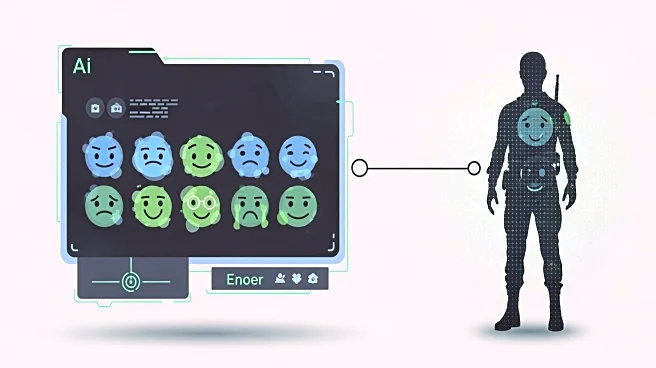What's Happening?
The IDF has introduced artificial intelligence tools to help soldiers recognize signs of emotional distress among their peers, as part of efforts to prevent suicides and address post-traumatic stress following the war in Gaza. Brig. Gen. Zivan Aviad-Beer
announced the deployment of an AI chat-based system that trains soldiers to identify distress signals, supplementing traditional awareness programs. This initiative is part of a broader strategy to integrate soldiers with PTSD into regular and career positions, rather than discharging them. The IDF Medical Corps has also improved battlefield medical care, significantly reducing the case fatality rate compared to previous conflicts.
Why It's Important?
The use of AI in mental health training within the IDF marks a significant shift in military healthcare, emphasizing proactive mental health support alongside physical care. By equipping soldiers with tools to detect emotional distress, the IDF aims to prevent crises before they occur, potentially reducing suicide rates and improving overall troop welfare. This approach reflects a growing recognition of mental health as a critical component of military readiness and resilience. The integration of soldiers with PTSD into active service roles further underscores the IDF's commitment to comprehensive care and rehabilitation.
Beyond the Headlines
The IDF's initiative to use AI for mental health training highlights the ethical and cultural dimensions of military healthcare. It represents a shift towards a more holistic approach to soldier welfare, acknowledging the long-term impacts of combat stress. The integration of soldiers with PTSD into active roles challenges traditional views on mental health in the military, promoting inclusivity and support. This development may influence other military organizations to adopt similar strategies, fostering a global dialogue on mental health and technology in defense settings.
















